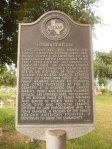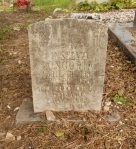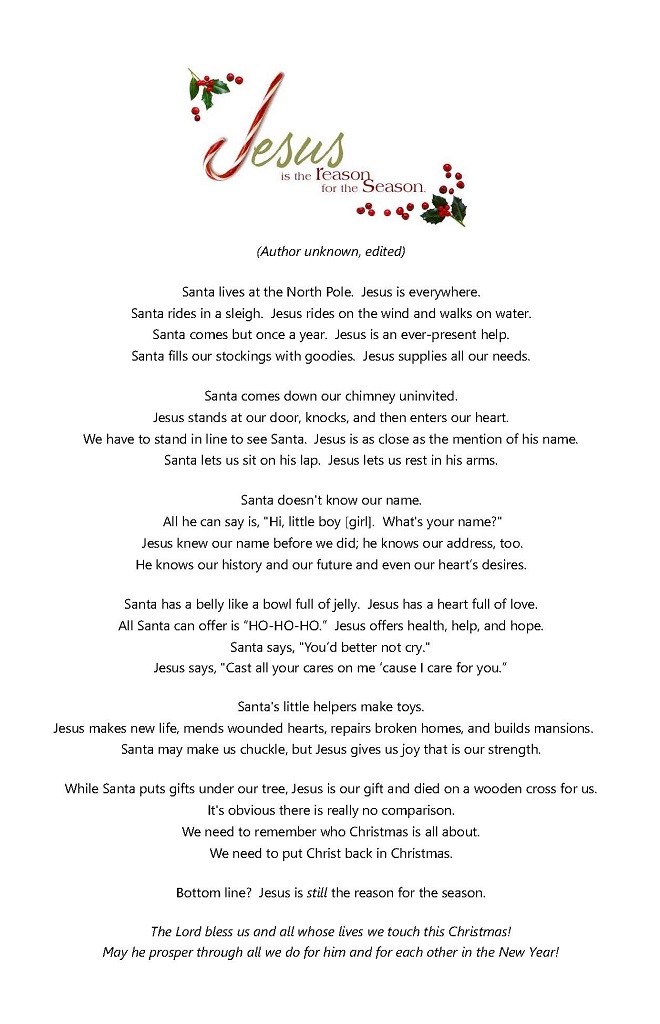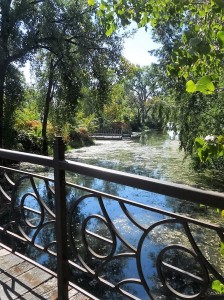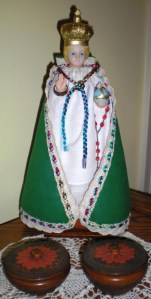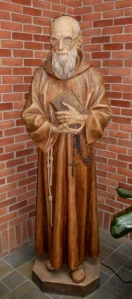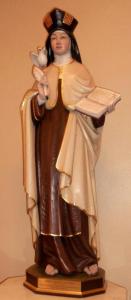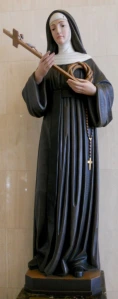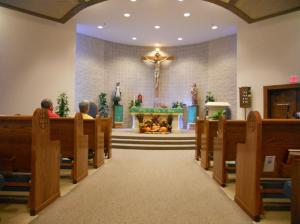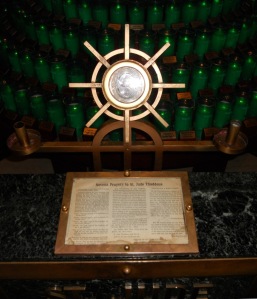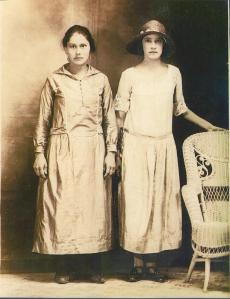 What a conundrum I’ve faced collecting my thoughts for St. Anselm’s post! For more than two years, I’ve had him in the ol’ pea brain’s draft folder… waiting, waiting, waiting until today.
What a conundrum I’ve faced collecting my thoughts for St. Anselm’s post! For more than two years, I’ve had him in the ol’ pea brain’s draft folder… waiting, waiting, waiting until today.
Namesake
Growing up, one of my classmates asked, “Who’s your birthday saint?”
“My what?”
“I was given the name of the saint on whose feast day I was born,” the girl said. “Weren’t you?”
“No, I was named after mom’s mother.”
(Grandmother is pictured on the left with Elvira, her younger sister. Just look at those hardworking hands! What a beautiful, resilient spirit!)
St. Anselm
When I created our church website, May 2008, I included a page on saints that I quickly filled with lots of web links. Then, April of the following year I came across St. Anselm for the first time and was especially taken with his intercessory prayer to St. Nicholas.
Your fame calls to me, your miracles send me to your intercession, your works draw me to seek your help. But why do I speak about your miracles, when your power now is greater than them all? Why do I recount what you have done, when before God you now have supreme grace? (St. Anselm).
What a noble gesture to sing someone else’s high praises! What confidence to call on St. Nicholas, our beloved Santa Claus! I could certainly relate. I received my special delivery from Santa within a year’s time after writing my first letter ever to him, Christmas Eve 2004, so I know firsthand of St. Nicholas’s intercessory power.
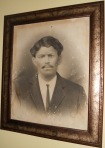 St. Anselm turned out to be a fascinating read, but I stepped away to reflect on his writings for a while longer. Then, rather conveniently, I forgot about the post I’d intended to write… until the proverbial rose leaf fell on this Chicken Little’s noggin.
St. Anselm turned out to be a fascinating read, but I stepped away to reflect on his writings for a while longer. Then, rather conveniently, I forgot about the post I’d intended to write… until the proverbial rose leaf fell on this Chicken Little’s noggin.
Grandfather was born on April 21, St. Anselm’s feast day, so was he named for his birthday saint?
A rose
Late August of last year, Steven and I stopped by the old Esparza cemetery on Hwy 281 to visit dad’s and granddad’s grave sites. Between 1970 and 2004, their headstones had been in the same place. So I’d never expected to find their headstones moved from their original spots.
Overcome with grief and disappointment, I was angry. Do their resting places mean nothing to anyone but me?
Consoling myself by walking around the cemetery, I recalled previous visits alone and with the kids as I instinctively did what I’ve always done, leaning forward to touch each of the two headstones. I spoke softly, first to granddad, then to dad, about their lives in the small rural community and their significance in my life. Being there I’ve always felt connected to them, as if they’re alive in parallel universes from which they can hear and see me.
Trying hard to hold back the tears, I thought about so much more than I said.
I love you. I love you more than you’ll ever know. I never had the chance to tell you. I miss you sooo much. I don’t think that will ever change. Coming here is the next best thing to having you close. You walked these grounds during your lifetime just as I’m doing today. I don’t know when I’ll be back this way again, but I know you’re always with me. I feel your love whether I’m here or not. We’re always together mind, heart, and soul. I’m forever grateful that, through you, I’ve come to understand God’s love for me.
Dad left El Ranchito when he married mom, and his body returned for burial four months short of their seventh wedding anniversary.
My great-grandmother died the following year, so my grandfather moved in with his brother’s family. Then he died a year later. According to mom, Great-grandmother Paz and Grandfather Anselmo had vowed from the beginning— dad’s mom had died after his birth— to be there for my father until he died. And they kept their word!
Dad and my grandfather were buried at the Esparza cemetery because my uncle, a very thoughtful, generous man, was married to an Esparza and lived across the highway from the cemetery. Tío Pancho loved his brother and his nephew so much that he wanted them nearby, if only in spirit. Now he’s buried there, too, next to his wife. So, it’s only fitting that their collective final resting place should be the same cemetery.
As for Grandfather’s name? There’s no one alive who could tell me stories about his growing up, much less about his name. I’d like to think that being born on St. Anselm’s feast day was reason enough for his parents to name him Anselmo.
April twenty-first
St. Anselm’s big day kept getting closer and closer, but I was so sure I’d get the post written in one day that I focused on other creative tasks until the day before.
Oh, my gosh! Was I ever wrong, as in wrrrong!
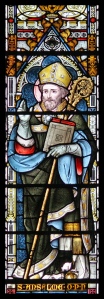 Reading the first online article, reality smacked me in the face. I immediately knew two things: why I’d put St. Anselm on the back burner for two years and why writing the post was going to take time. Time to calm down. Time to analyze and evaluate. Time to come to terms with St. Anselm’s illogical reasoning.
Reading the first online article, reality smacked me in the face. I immediately knew two things: why I’d put St. Anselm on the back burner for two years and why writing the post was going to take time. Time to calm down. Time to analyze and evaluate. Time to come to terms with St. Anselm’s illogical reasoning.
No resolution
I tried, but I just went round and round refuting points three and four of St. Anselm’s ontological argument (1087).
- God is the greatest being imaginable.
- In the mind and/or in reality, no one exists who’s greater than God.
- If God exists in the mind and in reality, that cinches the deal: God is real. The same is true if God exists only in the mind. On the other hand, if the mind thinks of the greatest being imaginable— and that being isn’t God— then that being isn’t real.
- Therefore, God is real because he exists in reality and in the mind.
“If St. Anselm had presented his proposal to Dr. Weber [my dissertation methodologist at the University of Houston], he never would’ve earned his doctorate,” I told Steven. “His logic doesn’t make sense! How ridiculous to try to prove that God is real! Then to have others agree that his theory’s based on a legitimate premise? Hogwash! It doesn’t fly! God is based on faith, and faith can’t be measured. So God’s existence can’t be scientifically supported. Besides, one either believes or doesn’t.”
On and on I jabbered to Steven who was partly listening and mostly enjoying his computer games on his side of the room.
“You know, darling, I would’ve been okay accepting St. Anselm’s theory to a point. God’s real because I have faith, but to say that I have faith because God’s real? No. God’s an abstraction. And, even though we acknowledge him as creator of all, he’s not real like us. He’s in a category all by himself. So how can we lesser beings prove anything about him?”
I continued with my online reading while reflecting out loud.
“Just this morning I came across a painting of the crucifixion of Jesus on the ‘Picturing God’ page of Ignatian Spirituality online and realized something. I don’t picture God on the cross. Jesus is on the cross. God is totally different from Jesus, just as the Holy Spirit is different from both of them. The three are related as the Holy Trinity, but they’re three distinct entities. And another thing: If God were real, we’d know what he looks like. How does one visualize God when no one’s seen him? My perception of God is uniquely different from yours and everyone else’s because it’s based not only on my imagination, but also on my personal relationship with him.”
The dilemma kept growing like James’s peach instead of resolving itself somehow.
I very much would’ve welcomed a peaceful night’s rest with a fresh start in the morning, but it wasn’t going to happen. God wanted me to experience discomforting disequilibrium a bit longer. Nevertheless, I distanced myself from St. Anselm and went to bed.
Coming to terms
I’d hoped for clarity on waking, but I didn’t get it. For most of the morning, I struggled with accepting St. Anselm’s ideas. Yet the more I thought about his logic, the more I began to understand his perspective.
Over [nine-hundred] years have passed since Anselm described the ontological argument. Many people have refuted it [while] some have fervently defended it. Today, there are still those who think the reasoning of Anselm is, more or less, reasonable (Villa, n. d.).
While I disagree with St. Anselm’s calling me and others like me fools, I can certainly admire his passion for so zealously wanting to build community within God’s kingdom.
Loyalty means not that I agree with everything you say or that I believe you are always right. Loyalty means that I share a common ideal with you and, regardless of minor differences, we fight for it, shoulder to shoulder, confident in one another’s good faith, trust, constancy, and affection (Menninger, 2002).
St. Anselm loved God so much that he wanted others to believe unquestioningly. Without struggling. Yet even Thomas doubted, and God didn’t love him any less.
Then [Jesus] said to Thomas, “Put your finger here and see my hands, and bring your hand and put it in my side, and do not be unbelieving, but believe.” Thomas answered and said to him, “My Lord and my God!” Jesus said to him, “Have you come to believe because you have seen me? Blessed are those who have not seen and have believed” (John 20:27-29; Confraternity of Christian Doctrine, 1970).
Picturing God
Saturday morning I woke up knowing I’d replace the Crucifixion as the “picturing God” widget on the church blog, but the new photo had to meet my SJC criteria: a nature scene at our church.
But what qualifies as a true representation of God?
I’ve taken thousands of photos since rejoining St. Joseph’s late April 2008; so that’s quite a mental catalog to peruse, not to mention actual time looking through photo files.
Thinking about St. Anselm while pondering the essence of God, I serendipitously recalled our standing with Fr. Frank outside the front entrance at church before nine o’clock Mass…
Quite unexpectedly the day’s brightness ominously darkened as the sun played peekaboo on a whim. Coolpix ready I turned to look, capturing sun rays emanating from gray-blue clouds like luminous arms interjecting a heavenward hallelujah.
Awestruck, I surrendered my undivided attention to God’s glorious, dramatic presence— sans proof.
Prayers
For fathers… God our Father, we give you thanks and praise for fathers young and old. We pray for young fathers, newly embracing their vocation; May they find the courage and perseverance to balance work, family, and faith in joy and sacrifice. We pray for our own fathers who have supported and challenged us; May they continue to lead in strong and gentle ways. We remember fathers around the world whose children are lost or suffering; May they know that the God of compassion walks with them in their sorrow. We pray for men who are not fathers but still mentor and guide us with fatherly love and advice. We remember fathers, grandfathers, and great-grandfathers who are no longer with us but who live forever in our hearts and nourish us with their love (Companions of St. Anthony).
Seeking God… O Lord, my God, teach my heart this day where and how to see you, where and how to find you. You have made me and remade me; you have bestowed on me all the good things I possess and, still, I do not know you. I have not yet done that for which I was made. Teach me to seek you, for I cannot seek you unless you teach me or find you unless you show yourself to me. Let me seek you in my desire; let me desire you in my seeking. Let me find you by loving you; let me love you when I find you (St. Anselm).
To the saint whose name I bear… My holy patron saint, your name was given to me in Baptism, that I should often think of you and endeavor to please God as you did in your life on earth. It is my sincere desire to imitate your virtues and… one day join you in heaven singing God’s praises forever and ever.
Often I have been called by your name, but seldom have I shown your constant zeal in striving for holiness of life. Henceforth, I promise with God’s grace to reject all that is evil and to promote all that is good. I petition you, my holy patron saint of God, to intercede for me that I, like you, may one day enjoy the bliss of being numbered among God’s saints for all eternity. Amen (Favorite Patron Saints, The Leaflet Missal Company, n. d., p. 27).
April 26, 2011
Today I received Fr. Robert’s perfectly timed daily inspiration, “God is Love,” from the Dominican Shrine of Saint Jude Thaddeus in Chicago.
“We have come to know and have believed the love which God has for us. God is love; the one who abides in love abides in God, and God abides in him” (1 Jn. 4:16).
The most profound way in which we can understand the nature of God is to read the letter from the beloved apostle John. The word “love” is repeated over and over again in describing what he knew about God. He tells us “God is love.” It is love that is the reason for all that God has done for us. The creation of the world, the sending of his beloved Son, Jesus’s death on the cross, and his final glorification and our sanctification are all signs of God’s love spilling forth from the love contained in the Blessed Trinity. When we hear that “God abides in us,” we are being told that the living presence of God permeates our entire being. That is how close we are to God. Therefore, we can trust God and savor his unfailing love for each one of us. God loves us so much.
April 27, 2011
Nothing ever becomes real until it is experienced. Even a proverb is no proverb until your life has illustrated it (John Keats).
November 29, 2013
The Jewish view of God is not static or frozen in any time or place. It is constantly growing, changing, expanding. For even though God is constant, people are forever growing and developing. So each person in each generation must discover, understand, describe, and relate to God in his or her own way out of his or her own life experiences (Dosick, 1995, p. 9).
September 9, 2014
“Seek God and endeavor to find him in all things” (St. Peter Claver).
January 8, 2015
We can believe what we choose. We are answerable for what we choose to believe (Bl. John Henry Newman).
February 13, 2015
“Nothing is sweeter than love— nothing stronger, nothing higher, nothing more generous, nothing more pleasant, nothing fuller or better in heaven or earth— for love proceeds from God and cannot rest but in God above all things created” (St. Thérèse of Lisieux).
February 24, 2015
“God must be loved first in order that one’s neighbor, too, may be loved in God” (St. Bernard of Clairvaux).
April 1, 2015
“To treat human nature as simply separate from God, and thus to attempt to construct a civil society without reference to God, is to treat of a thing that does not exist and to attempt to build a society upon that fiction” (Anthony Esolen in Reclaiming Catholic Social Teaching).
April 13, 2015
“Unless you believe you will not understand” (St. Augustine of Hippo).
April 21, 2015
O man, why do you roam about so far in search of good things for soul and body? Love the one good, in whom all goods are contained, and that will satisfy you! (St. Anselm).
June 4, 2015
“But when you take the leap to look at the world through the eyes of faith, you start seeing God’s fingerprints everywhere, creating connections so subtle, so delicate, they might pass unseen” (Cari Donaldson in Pope Awesome & other stories).
December 16, 2015
“He who does that which is displeasing to himself has discovered the secret of pleasing God” (St. Anselm).
July 15, 2016
St. Thomas teaches that love is like fire. It produces a flame, and the flame of love is zeal. If the fire burns intensely, then the flame will also be intense and devouring. True apostolic zeal is the spontaneous result, the normal fruit of the intimate contact of the soul with God through love. The more a soul is united to God by love, the more it becomes enveloped in the flame of his charity, participating in his infinite love for men, in his eternal zeal for their salvation; thus it necessarily becomes apostolic (Fr. Gabriel of St. Mary Magdalen, OCD, in Divine Intimacy).
September 21, 2016
God doesn’t let himself get caught in titles, names and facts. But he lets himself be suspected. And therefore it is only the one who prays to God, quite possibly the one who searches for silence himself, who can recognize him in the many little ideas, meetings, and happenings on the way (Kevin Burns in Henri Nouwen: His Life and Spirit).
February 12, 2017
God is not an idea or a concept for you to grasp. God is not something to be studied or something to define. No definition would be wide enough. God can never be fully contained by words or be understood by the human mind. You cannot define God but you can be with God. You can know God (Paula D’Arcy in The Divine Spark).
April 18, 2017
“What is faith, save to believe what you do not see?” (St. Augustine).
April 21, 2017
Make frequent spiritual aspirations to God by means of short but ardent movements of the heart. Marvel at his beauty, implore his help, cast yourself in spirit at the foot of the cross, adore his goodness, and beg him that you may be saved eternally. Give him your heart and offer your soul to him thousands and thousands of times. Fix the eyes of your soul upon his gentle face and hold him by the hand, just as a small child does with his father (St. Francis de Sales).
April 23, 2017
God did not abandon Thomas in his doubt, nor does he abandon us. Our God, after all, is full of compassion and patience. Doubt is a wound we all share. It is a wound that God longs to heal with his divine mercy (Peter J. Vaghi in Meeting God in the Upper Room: Three Moments to Change Your Life).
May 26, 2017
One beat of your heart, properly directed, the slightest movement of your free will, can mean more to the triune God than all the gyrations of sun, moon, stars, and sea from time’s first moment until time’s final end. In order that you might say, “I believe in God…,” the heavens were one time moved (Fr. M. Raymond, OCSO, in Spiritual Secrets of a Trappist Monk).
June 9, 2017
One cannot understand God without first believing in God. If you have any interest in knowing what’s true, you must first have faith. It is by faith that God purifies your heart. Unless you first abandon yourself to God, you will never know God. The more you love God, the deeper your faith, and the more love and faith you possess, the more you know what’s true (Jon M. Sweeney in The Saint vs. The Scholar: The Fight Between Faith and Reason).
July 3, 2017
“Thomas [the apostle]… helps us learn from Jesus the true meaning of mature faith, encouraging us to persevere as disciples of Christ” (Pope Benedict XVI).
July 4, 2017
Traditionally, he is called “Doubting Thomas.” Yet doubt is a wound that each of us shares. It is not necessarily a fatal wound, nor is it a flat-out rejection of our faith. I can picture myself that evening having a similar doubt. Maybe you can as well. We certainly have experienced doubt in our efforts to explain the faith to others. Sometimes we are rejected. More often, we have to unveil the beauty of our faith over time and with utmost patience.
God did not abandon Thomas in his doubt, nor does he abandon us. Our God, after all, is full of compassion and patience. Doubt is a wound we all share. It is a wound that God longs to heal with his divine mercy (Peter J. Vaghi in Meeting God in the Upper Room).
July 10, 2017
So, the beauty of nature reflects the beauty of God. For those who will not close their eyes and who harden not their hearts, beautiful things are seen as the fingerprints of God. “A whirlwind and clouds are the dust of his feet.” All things are his messengers, making known his goodness, his justice, and his power (Fr. Killian J. Healy, O. Carm, in Awakening Your Soul to the Presence of God).
July 28, 2017
Lord, I long to see you. With my own eyes, I want to see you myself, see you for who you really are. Not through another’s eyes.
I’ve heard so much about you. How much is opinion? How much is hearsay? How much is truth? I want to know for myself. I want to hear with my own ears. Please come near, Lord, as you pass by today.
I am out on a limb, waiting for you, out of my comfort zone. And as you come, overwhelm me with the wonder that it is not I who seek you, nearly so much as it is you who seeks me (Sonja Corbitt & Dcn. Harold Burke-Sivers in Ignite: Read the Bible Like Never Before).
February 5, 2020
The life of the blessed is an eternal contemplation: they see God, love him, and are united to him in an indissoluble embrace. This is the true life (Luis M. Martinez in Worshipping a Hidden God: Unlocking the Secrets of the Interior Life).
Links of interest… Be amazed… Best description of God, ever… Christian faith is not blind belief… Doubting Thomas & faith in the resurrection… El Ranchito cemeteries: Esparza / Zepeda… Embrace the four eyes within you… Father is a complex metaphor for God… Finding God: Ignatian Spirituality / in all things / in creation… Genealogy: find a grave / online TX records… God confirmation / is an artist / or man… God’s world & our place in it (book)… Handing down the faith: Catholicism is caught, not taught… How a little healthy self-doubt helped me stop doubting God… How God is present in us / to prove that God doesn’t exist / we long for the face of God… I believe in God… James & the giant peach… On being human & the need to wonder… Saints: heroes / patron / quote of the day… See life through God’s eyes… St. Anselm: ABC’s / about / archbishop / Benedictine monk / biography / bishop & doctor / desire for the vision of God / on God’s existence / ontological argument & criticism / philosopher / prayer (to St. Nicholas) / seeking satisfaction & mercy / slave of religious liberty / theologian… St. Fidelis: about / biography / Capuchin / feast (Apr 24) / Mark Roy / martyr / memorial / readings… St. Frances of Rome: Finding God in the little things… St. Nicholas: bishop / chaplet / feast / prayers / profile / who he is… St. Thomas: of great faith / questioning your faith / seeing is not believing… Waiting for God… What’s in a name… Wisdom of Wolves: book / how wolves can alter the course of rivers from Simple Truths…
WP posts… Concrete abstraction… Dear God… Faith and prayer… Gifts… Letter to Santa… Lingering memory… Little gifts… Making meaning… Mourning joy… One prayer… Perfect prayer… Soulful… Two takes
Filed under: prayer, spiritual gifts, St. Anselm, St. Nicholas | Tagged: building community, Dominican Shrine of Saint Jude Thaddeus-Chicago IL, God's master plan, overcoming adversity | Leave a comment »


